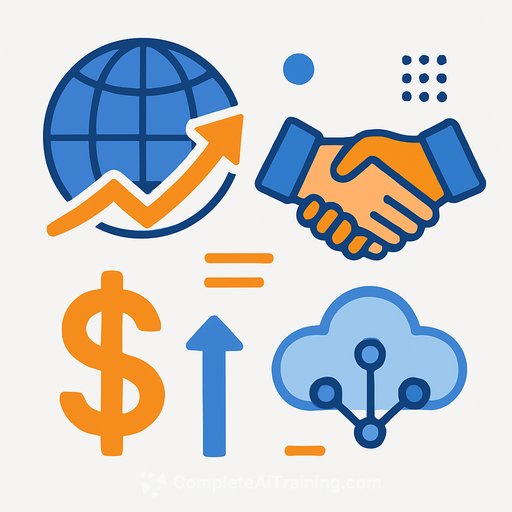Second Nature raises $22M to scale AI sales training
Second Nature AI has secured $22 million in Series B funding to accelerate engineering and product development. The round was led by Sienna VC, with participation from Bright Pixel, StageOne Ventures, Cardumen, Signals VC and Zoom Communications Inc. This brings total outside funding to more than $37 million.
Hiring and onboarding sales talent is expensive, slow, and hard to measure. Second Nature's platform tackles that by simulating real buyer conversations, scoring performance and feeding insights back to managers.
How the platform works
Sales managers describe a likely conversation in plain language. The platform generates an AI persona that role-plays the buyer, asks realistic questions and pushes back with common objections.
Complex B2B deals often involve multiple stakeholders. Second Nature can simulate different buyer types-an economic buyer, end user, or admin-so reps practice handling each perspective before they're in the field.
Teams can upload internal content such as website pages, product docs and call recordings. The system extracts best practices from successful calls and turns them into a checklist to track each rep's progress.
Built-in dashboards surface practice time, skill gaps and progress over time, with integrations to sync training data into existing learning systems.
What this means for revenue leaders
- Shorten ramp time: New reps practice daily against realistic scenarios without tying up managers' calendars.
- Drive consistency: Personas enforce messaging, objection handling and discovery frameworks across teams.
- Coach what matters: Checklists transform top-performer behaviors into measurable skills for everyone.
- Operate by data: Use analytics to spot weak points (e.g., pricing pushback, technical depth) and update enablement plans.
- Scale training: Integrations let you keep LMS records clean while running frequent practice sprints.
Proof points and customers
Second Nature reports that some enterprise customers have closed 46% more deals after rolling out the platform. The customer list includes major tech firms such as Zoom, Oracle and Adobe.
Beyond sales: HR and support use cases
The same AI personas can pre-screen job applications for HR or train new support hires on complex workflows. AI-driven training is gaining traction in other markets as well.
In cybersecurity, for example, companies are using AI to simulate phishing attempts and measure readiness. A recent example: a startup backed by the OpenAI Startup Fund raised funding to expand simulated phishing programs for enterprise teams.
How to put it to work in your org
- List your top 5 sales scenarios (e.g., pricing, security review, competitive displacement, executive demo, procurement).
- Upload core collateral: product one-pagers, FAQs, security docs and 3-5 top call recordings.
- Define a scoring rubric: discovery depth, quantifying pain, competitive positioning, objection handling and next-step setting.
- Run weekly practice sprints; review dashboards to spot skill gaps by rep and region.
- Sync with your LMS/CRM for completion tracking and manager coaching workflows.
If you're building an AI-ready sales enablement stack, explore practical training paths and tools for revenue teams here: AI courses by job.
Your membership also unlocks:






